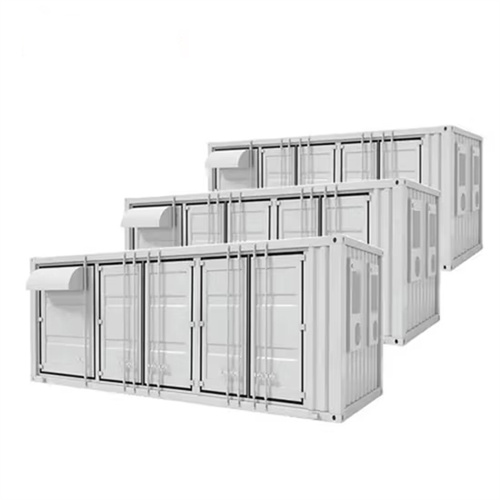About How big are the requirements for lithium batteries for household energy storage
The 2022 ATB represents cost and performance for battery storage with a representative system: a 5-kW/12.5-kWh (2.5-hour) system.
The 2022 ATB represents cost and performance for battery storage with a representative system: a 5-kW/12.5-kWh (2.5-hour) system.
To power your entire home during an outage, you’ll need a battery system that is about the size of your daily electricity load (about 30 kilowatt-hours (kWh) on average).
For a system with a capacity of at least 6kWh, which will provide the energy for some but not all of your electrical needs, you can expect the dimensions to fall in the range of:Height: 65cm – 120cmWidth: 45cm – 85cmDepth: 12cm – 30cm
As the photovoltaic (PV) industry continues to evolve, advancements in How big are the requirements for lithium batteries for household energy storage have become critical to optimizing the utilization of renewable energy sources. From innovative battery technologies to intelligent energy management systems, these solutions are transforming the way we store and distribute solar-generated electricity.
When you're looking for the latest and most efficient How big are the requirements for lithium batteries for household energy storage for your PV project, our website offers a comprehensive selection of cutting-edge products designed to meet your specific requirements. Whether you're a renewable energy developer, utility company, or commercial enterprise looking to reduce your carbon footprint, we have the solutions to help you harness the full potential of solar energy.
By interacting with our online customer service, you'll gain a deep understanding of the various How big are the requirements for lithium batteries for household energy storage featured in our extensive catalog, such as high-efficiency storage batteries and intelligent energy management systems, and how they work together to provide a stable and reliable power supply for your PV projects.
6 FAQs about [How big are the requirements for lithium batteries for household energy storage ]
Is lithium ion battery a safe energy storage system?
A global approach to hazard management in the development of energy storage projects has made the lithium-ion battery one of the safest types of energy storage system. 3. Introduction to Lithium-Ion Battery Energy Storage Systems A lithium-ion battery or li-ion battery (abbreviated as LIB) is a type of rechargeable battery.
How much power does a battery storage system need?
system does not need to provide for all of your needs.Most battery storage systems currently on the market have a power ating of 2–5 kW, and an energy rating of 2–10 kWh. Mult ple systems can be used to scale this up if necessary.Your peak power demand will depend on how many nd which of your appliances are used at the same time. Typical maximu
Are lithium-ion batteries safe?
There are also international best practice guidelines for industry to aid developers in the design and operation of battery storage systems in a safe and secure manner. A global approach to hazard management in the development of energy storage projects has made the lithium-ion battery one of the safest types of energy storage system. 3.
Should I invest in a battery storage system?
consider before you invest in a system for your home.Installing a battery storage system* can provide a number of benefits when used in onjunction with an existing or new solar panel system.The overall system that is constructed for your home or bu iness is called a ‘battery energy storage system’. For the purpose of this gui
What should I look for when comparing battery storage systems?
URES SHOULD I LOOK FOR IN A BATTERY STORA to look at when comparing battery storage systems are:How do I know what e system is doing (i.e. what is the user interface?)?How is it intended to be used (e.g. some systems are only intended for providing backup power while others can only charge fro your solar panels and not fro
What is a battery energy storage system?
A battery energy storage system (BESS) is an electrochemical device that charges (or collects energy) from the grid or a power plant and then discharges that energy at a later time to provide electricity or other grid services when needed.
Related Contents
- Requirements for household energy storage lithium batteries
- How to measure the quality of energy storage lithium batteries
- How is the processing fee for energy storage lithium batteries
- How are European and American energy storage lithium batteries
- Market analysis of household energy storage lithium batteries
- Problems with lithium batteries for household energy storage
- How to calculate photovoltaic energy storage batteries
- How big is the range of the energy storage system
- How to find energy storage lithium battery manufacturers
- How much does lithium battery energy storage cost per kwh
- How much is the price of lithium battery for energy storage welding machine
- How big is the role of factory energy storage cabinets


